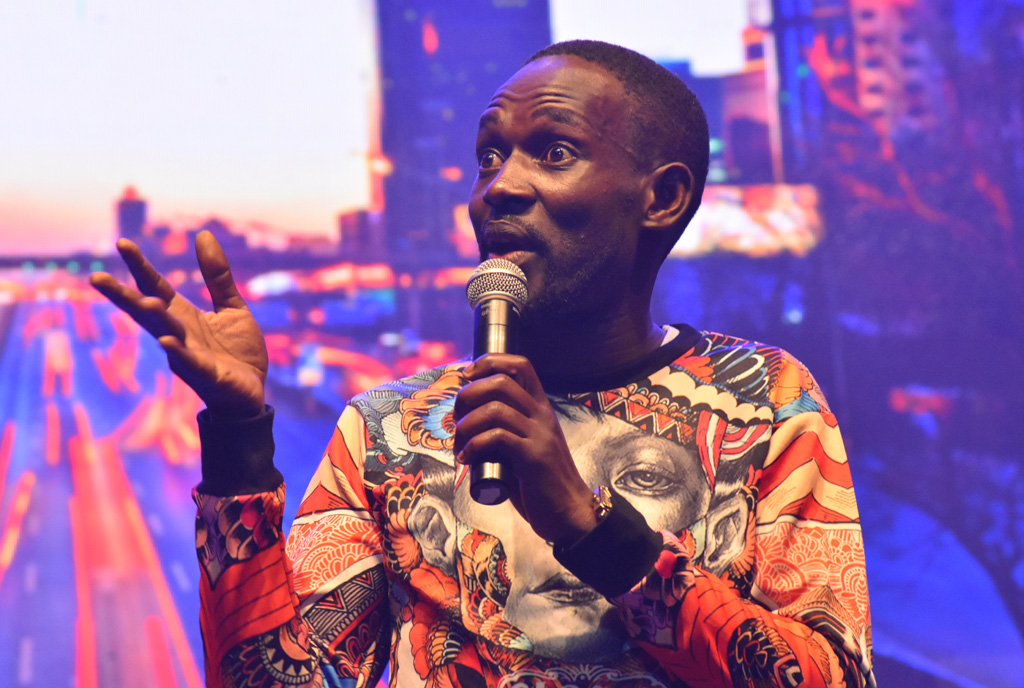The Making: Before it became a global hit or the that gives you goosebumps, or brings out the party animal in you, or one that reflects your emotions as if it was a recreation of your love story or sad story, it went through a sophisticated, patient process that involved several brains and hands. Gabriel Buule explores the story of music making.
Samuel Lukyamuzi, alias Sammie, is one of Uganda’s most acclaimed songwriters and lyricists, having scripted popular songs such as Winnie Nwagi’s Ssasi Kunyama and Rema Namakula’s Kaffe Kye, which have attracted more than three million streams across digital platforms.
Much as he charges Shs1m to pen lyrics of a song, Sammie’s job stops at crafting the story or sometimes creating a demo to the song and leaves the rest to whoever buys his lyrics.
“I write music and that is my contribution to the making of a particular song but it is just part of the entire process,” Sammie explains.
He adds that after a songwriter puts an idea on paper, the job is left to the musician and the producer to finish the craft that comes out as a song.
Sammie, however, reveals that sometimes he can be hired by the studio or the singer to guide the production process so that the other production values match the lyrics.
“Sometimes I guide on the particular kind of rhythm, progression and instrumentation to suit the lyrics that I create,” he notes.
Just like Sammie, many stakeholders in the music industry say there is more to any song than the audience listens to and everything comes at a specific cost, usually dictated by the producer.
Music production goes beyond developing, creating and refining recorded music for public consumption says Jude Mugerwa, a producer and sound engineer.
Mugerwa adds that currently, the entire music process can be determined by what product the creator wants to come up with. Adding that there are many aspects involved; songwriting, composition, recording and sound design, mixing and mastering are crucial.
Who is involved?
Joseph Arinaitwe, alias Jose Arins, the proprietor of Mulika Studios, reveals that professionally, the process of music production involves six basic stages.
He explains that ideally, for each song to be produced, a songwriter, music arranger, mixer, tracker, editor and music master must be involved.
Arins, however, adds that in a growing industry such as Uganda, all that load is usually done by the producer and sometimes a writer or producer and a master, to minimise costs of production.
Francis Kisakye, alias Pyret Beats, the proprietor of Statement Music, onSalaama Road, a Kampala suburb, says sometimes the parties involved in production of a song are determined by the type of production, artiste’s preferences, genre and the instruments prescribed by the music author.
He notes that in this digital age, the existence of specific production software, pre-installed with a wide range of instruments such as a piano, guitar, cello, drums, flutes among others, has made the producer’s work a tad easier. He adds that most rhythms are created on a computer, relieving the producers of the burden of paying live instrumentalists, who would otherwise be hired to play specific instruments.
The costs
The costs of song production in Kampala vary depending on the type of production, the producer and sometimes the artiste. Producer Pyret notes that sometimes a studio can work for any amount if the artiste is extra talented.
This is partly because the studios can use that artiste’s musical productions as a marketing bait.
It is also logical, Pyret adds, that most artistes will always run to that studio that has a proper production team at a particular time.
“Musicians are always moved by trends and good works, any successful production can result in more projects,” he asserts.
His productions range between Shs450,000 and Shs1.8m, depending on the artiste’s demands. For example, specific music genres such as Neo-soul and RnB will sometimes require live instruments such as guitars, drums, and traditional instruments. That requires hiring instrumentalists, meaning the musician will have to pay a little higher.
Most instrumentalists, Pyrets says, are paid between Shs150,000 and Shs250,000 per recording session, meaning the more the sessions, the more the money.
While ideally a studio’s budget caters for mastering and arranging costs, most studios will always require a musician to pay extra for mastering and arranging, both crucial aspects in the making-music process.
Producer Big Nash, original name Nathan Tusubira, charges each production segment differently. The former Swangz Avenue producer, currently attached to Black Market Records, reveals that his clients have to pay production and mastering separately.
Nash says he charges between Shs1.5m to Shs2m for audio production, covering other production demands such as live instruments, among others, and an extra between Shs300,000 and Shs500,000 for arranging and mastering, depending on the nature of production. The celebrated hitmaker, reveals that he charges based on time although his rates do not change irrespective of how long it takes him to produce a particular song.
Unlike Nash, top city music producer and singer Daddy Andre, alias Andrew Ojambo, says he charges studio sessions on an hourly basis, although he acknowledges that clients who opt to pay in time are few.
He reveals that on normal working terms, he charges Shs1m for audio production and an extra Shs450,000 for music arranging and audio mastering.
Andre, however, adds that it is a musician’s obligation to cater for extra instrumentalists.
However, most producers in Kampala will charge lower for artistes working on a body of work, say, an album, long play or extended play.
Distribution, publishing
Shadrach Kisame, a music distributor, reveals that for any music project to be deemed successful, it must be subjected to distribution since music is made for consumers.
Kisame explains that after production, a musician has a duty to work with distributing and publication entities to make sure that the song reaches the targeted audience.
“Recorded music should always be made available to consumers and it is an important aspect of its business model; it makes it possible to purchase most music in stores and online streaming channels,” he explains.
Kisame adds that for a song to guarantee remittances in the digital age, it must be subject to publishing, which involves licensing the copyrighted use of a particular musical work or song.
Apparently, there is no clear fee for publishing music in Uganda; most musicians do it on their own and others deal with a few existing record labels to distribute.
Kisame says most distributors agree on a shared percentage to distribute music on behalf of the musician.
He reveals that at Black Market Records, the benefits are shared 50 per cent between the distribution and the artiste.
Musician Kenneth Mugabi says it is important that music is stored on physical distribution devices such as CDs and flash disks, to enable a wide range of consumers to access musical works such as albums, EPs or long plays.
In downtown Kampala, a branded CD goes for Shs60,000 and a flash disk goes for Shs150,000.
Branding, promotion
Hanson Ssemakula, a music promoter downtown, says promoters earn between Shs10,000 and Shs200,000 to distribute music in libraries and at broadcast media houses.
Kisame explains that when the song is produced, the next step is production of promotion content. He says such content includes artwork, lyrics, video and song visualisers.
He adds that artwork for each song made, ranges between Shs35,000 to Shs50,000, depending on the artistes’ demands. He also notes that the lyrics video costs Shs100,000 and a visualiser costs Shs160,000.
He, however, emphasises that some aspects, though crucial in the promotion process, can be avoided.
Kisame also notes that currently, record labels charge Shs350,000 for optimisation of artistes’ digital channels.
Unwanted costs
With the boom in the music business, competition continues to be stiff as creatives fight for audience, space and airplay.
A musician who commented on grounds of anonymity, says most musicians end up paying DJs, music schedulers and music show hosts in exchange for airplay.
In quite a similar manner, musicians and their managers go the extra mile to hire social media influencers to get trends for their specific crafts.
Uganda’s first song to be recorded
Multiple sources indicate that Elly Wamala’s Nabutono was the first song to be recorded in Uganda in 1959.
Although some writers dispute the matter, Nabutono turns out to be the only known song to have been recorded on vinyl as commissioned by Kabaka Sir Edward Muteesa.
Don’t want to miss out on any story? For updates on all Sqoop stories, follow this link on Telegram: https://t.me/Sqoop




























































